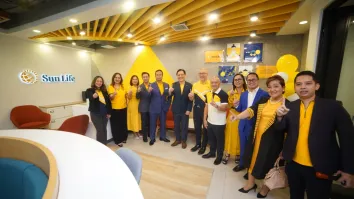Korean reinsurance jumps 15.3% in 2022
There is higher demand for reinsurance and co-insurance, Korea Re said.
Inward reinsurance in Korea reached KRW14.9t in 2022, jumping 15.3% on a year-on-year basis, according to Financial Supervisory Service (FSS).
This growth was fueled by higher demand for reinsurance and coinsurance ahead of the implementation of the Korean Insurance Capital Standard (K-ICS), Korean Re said in a market update.
Domestic reinsurance made up 77.9% of the total premiums, with the remaining portion comprising cross-border transactions.
In 2022, the trend of Korean cedents reducing their retention levels continued, leading to increased reliance on reinsurance capacity.
This has resulted in higher premium rates and stricter underwriting guidelines. The average retention rate has been declining since 2020 when insurers faced significant losses from incidents like fires at local chemical plants.
To manage business volatility, insurers have been ceding more risks to their treaties. However, they have struggled to secure the necessary proportional capacity due to poor treaty results.
The Korean market consists of nine professional reinsurers and 17 non-life direct insurers involved in the reinsurance business.
ALSO READ: Korean insurers see 2022 profit surge 11.1%
Under the Insurance Business Act, direct insurers with an insurance business licence are automatically considered to have a reinsurance business licence for the relevant insurance type.
Last year, direct insurers wrote inward reinsurance premiums which totalled approximately KRW1.82t, while professional reinsurers wrote premiums worth KRW 13.11t, giving professional reinsurers a market share of 87.8%.
Despite the full liberalisation of the Korean reinsurance market in 1997, Korean Re remains the dominant player in terms of local reinsurance premiums, they said.
It excels in providing high-quality services to cedents, including offering premium quotations for complex or novel risks that cedents are unable to underwrite themselves.
Additionally, Korean Re leverages its substantial retrocession premium volumes to offer competitive treaty terms to clients.



















 Advertise
Advertise









